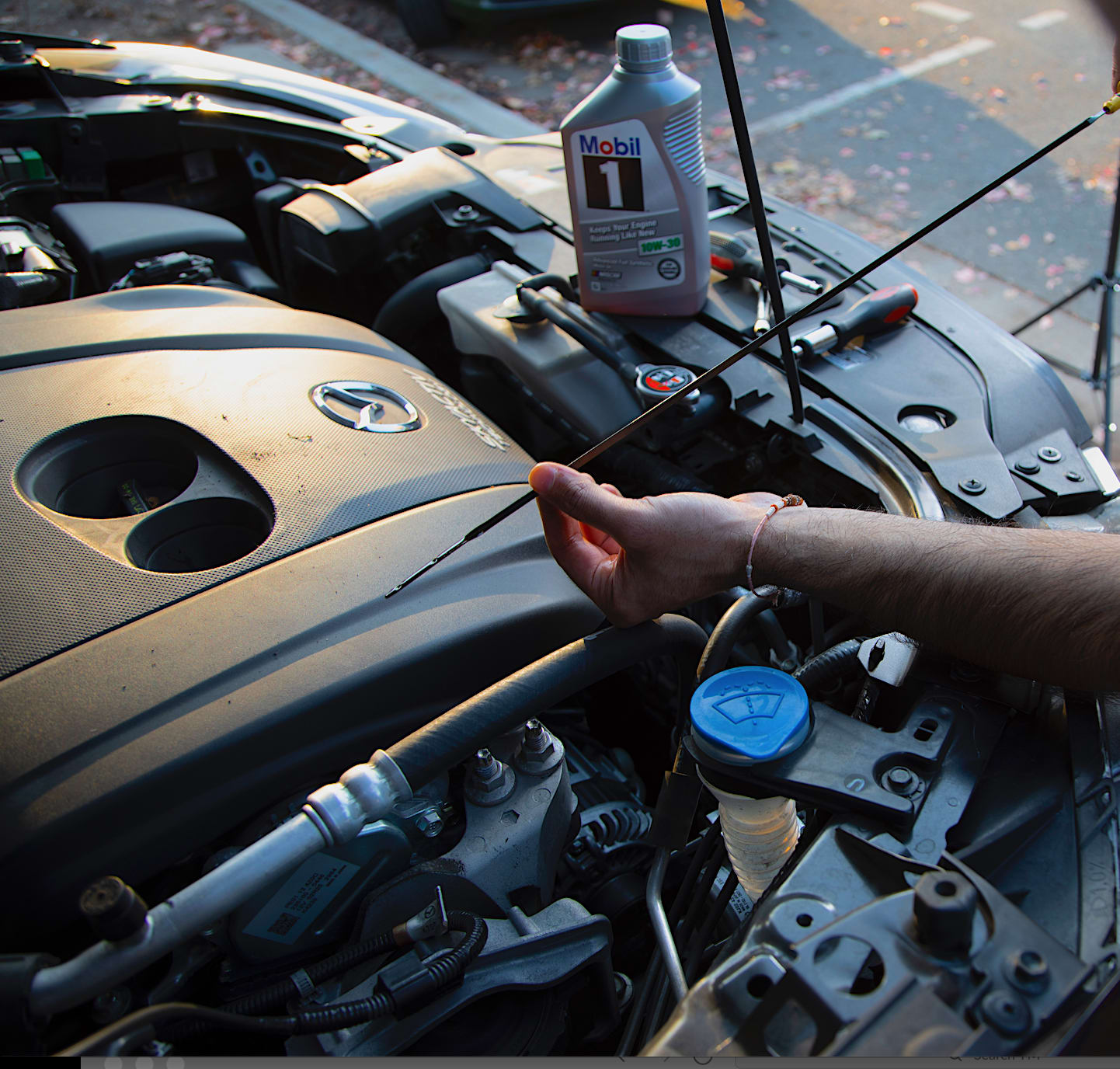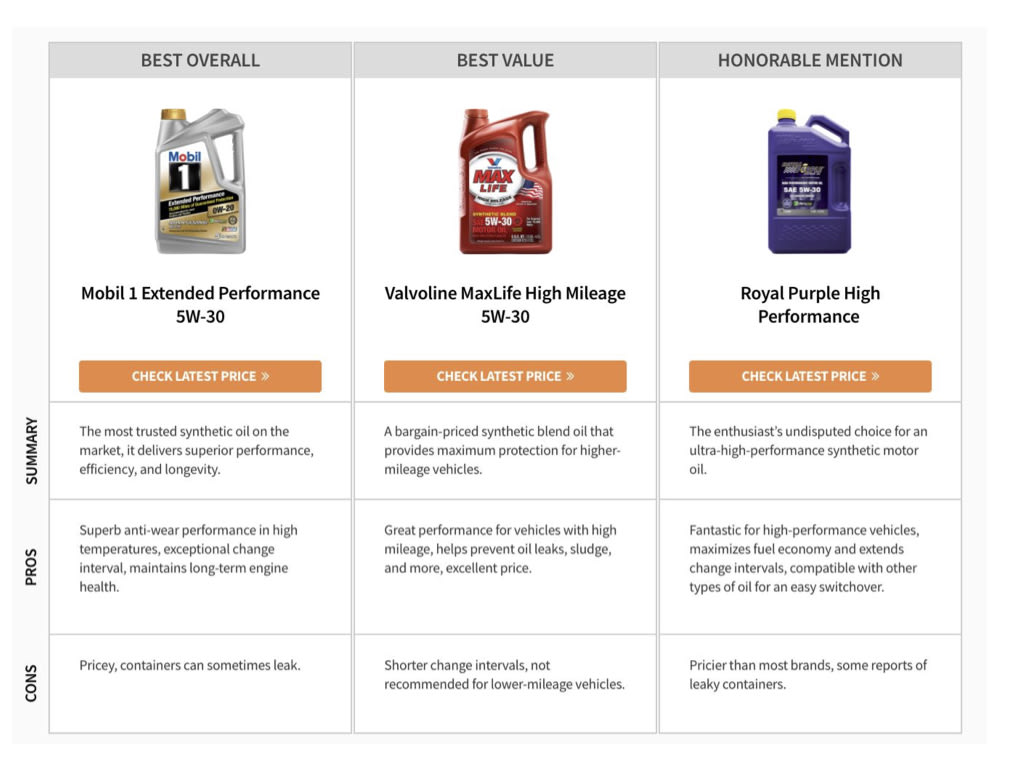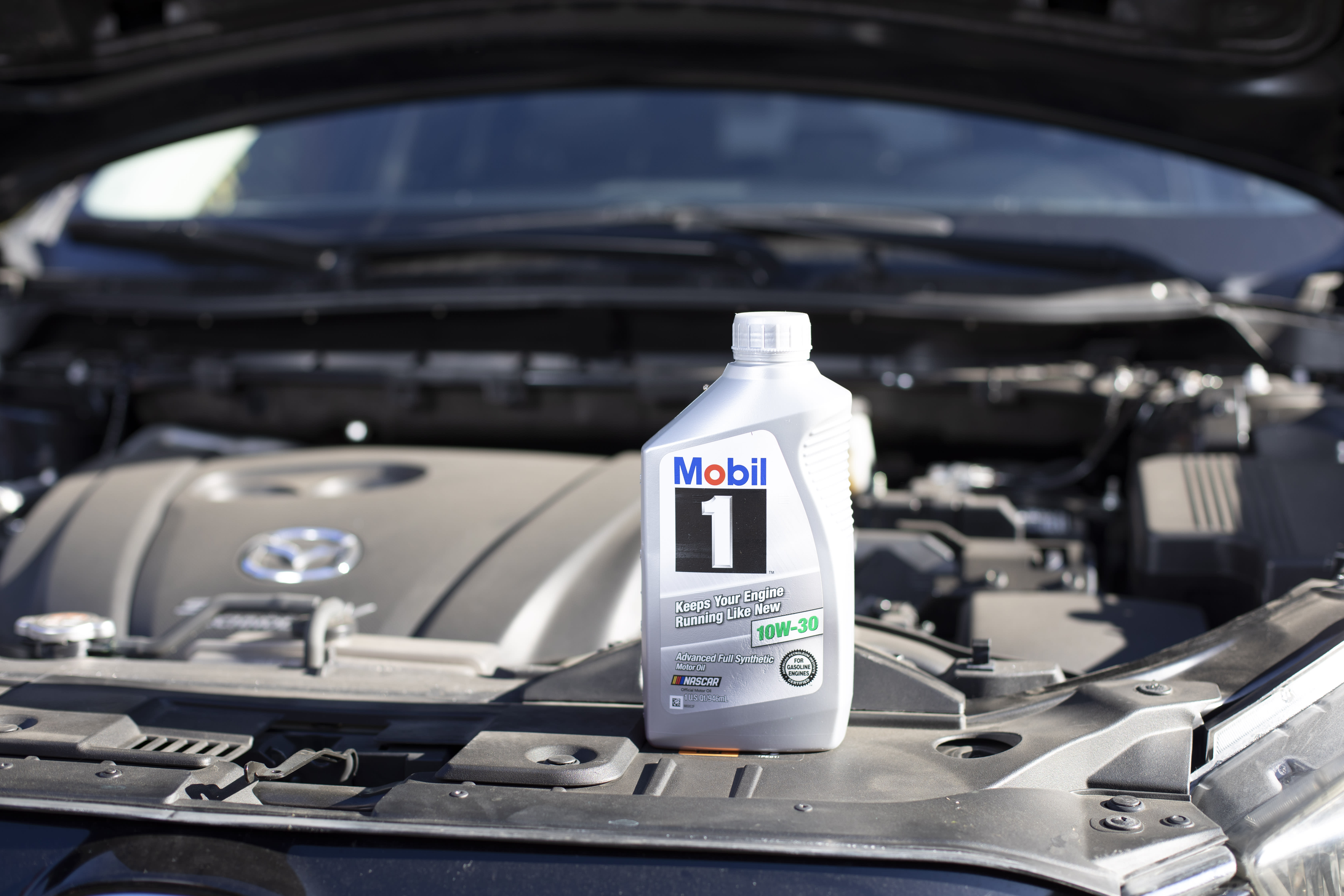

It’s ironic that many car owners spend thousands of dollars on car repairs while cutting corners when it comes to the least expensive – yet most critical – aspect of auto maintenance: oil changes.
According to Consumer Report's car maintenance experts, more than half of car owners in the U.S use a conventional or synthetic-blend oil. In other words, more than 50% of vehicle owners are missing out on the benefits of full synthetic oils: longer engine life, less wear and tear on engine parts, and longer intervals between services, as synthetic oils typically need to be changed once every 6 months, instead of once every 3 months for conventional oils.
Because most car owners leave their oil changes in the hands of their mechanics, they don’t usually consider the type of oil that goes into their vehicles. Many car owners opt to save some money by choosing conventional oil instead of synthetic oil for their oil changes, unwittingly creating conditions for more expensive car repairs down the road by leading to sludge build up. Yet when car owners learn about the value of synthetic oils for their engines, they decide to switch in order to ensure their car engine’s health and longevity.
Why is synthetic oil superior to conventional oil?
Synthetic oil is made in labs, using distilled crude oil and artificial, chemically modified materials. Each manufacturer has their own proprietary formula, using additives that help engine performance in a variety of ways, according to Car and Driver.
The top synthetic brands, evaluated for their viscosity, strength, and lubricity, include Valvoline, Royal Purple and Mobil 1, according to an independent review by The Drive. While all three brands’ synthetic oils will provide engines with decreased sludge buildup and longer oil change intervals, Mobil 1 was ranked at the top for its anti-wear properties in both extremely low and high temperatures. The brand is also favored among luxury brands and professional race car drivers for its blend of cleaning and performance-enhancing additives.
Mobil 1 uses a proprietary anti-wear technology that exceeds standards set by top Japanese, European and U.S. car makers. Their formula provides protection against engine wear, extreme heat, cold, and challenging driving conditions. The company’s proprietary blend promises car owners their engines will stay as good as new by lubricating engine parts more efficiently and staying intact in extreme temperatures, which can oxidize oil and cause it to thicken, and in turn, make it difficult to pump the oil around the engine, ultimately, decreasing engine efficiency, while wearing down the engine.
What is oil’s role in an engine?
Engine oil lubricates, cleans, and cool down engine parts, while reducing wear on engine components, enabling engines to work efficiently at controlled temperatures. By changing your oil with high quality oil at properly scheduled intervals, you can decrease the need for repairs down the line by reducing friction on engine parts. Oils are made with petroleum-based or synthetic (non-petroleum) chemical compounds - i.e. convention or synthetic blends, using hydrocarbons, polyinternal olefins and polyalphaolefins.
Oil is measured by its viscosity, or thickness. An oil needs to be thick enough to lubricate the components while being thin enough to move through the galleries and between tight clearances. Extreme temperatures – high or low – can impact the viscosity of the oil, wearing down its efficacy faster. So choosing the right oil for your car is similar to choosing the right blood type for a transfusion – it can be the difference between life and death for your engine.
If an engine is compatible with both synthetic oil and conventional oil, then it’s practically a crime against your car to use conventional oil, says master mechanic Boddy T. Synthetic oil is far superior to conventional oil, according to an independent evaluation performed by AAA, because it offers vehicles substantially better engine protection, enabling car engines to last longer, perform better in stop-and-go traffic, tow heavy loads, and operate under extreme temperatures.
History of synthetic oil: when and why was it formulated?
Synthetic oil was developed in 1929, roughly three decades after the invention of gas-powered cars. Since the 1930’s, synthetic oils have been used in everything from regular vehicles to high-performance vehicles to jets. According to Car and Driver Magazine, during World War II, when Allied Forces restricted oil supply to Nazi Germany, the embargoed country used synthetic oil to fuel vehicles for the German military. In the 1970s, the American Energy Crisis drove efforts to create better artificial oils as a way of improving fuel economy. Today, synthetic oils are used in both high-performance vehicles and mainstream engines, as automotive manufacturers aim to achieve improved fuel efficiency.
What’s the difference between full synthetic oil vs conventional oil?
Conventional oil, or regular oil, is derived from crude oil or fossil fuel. It consists of a mix of hydrocarbons, nitrogen, sulphur, and oxygen. Refineries heat up crude oil to the temperature required to turn it into functional motor oil that’s designed for oil changes.
Synthetic oils are created through complex processes, as they’re developed from petrochemicals and require precise molecular formulations that remove impurities from crude oil while custom tailoring molecules to meet the demands of modern engines.
Why is synthetic oil better for your car than conventional oil?
As conventional and synthetic blend oils break down, typically, their ability to prevent engine wear diminishes. Oil is prone to picking up deposits as it circulates and lubricates engine parts during the thousands of cycles that car parts need to perform per minute.
Compared to full synthetic oils, conventional oils eventually produce engine sludge and decrease engine efficiency, slowing it down and decreasing its life span. Think of the sludge gradually produced by conventional oil as cholesterol inside of arteries, slowly producing poor blood flow, and eventually creating systemic issues in the body. The reason most vehicles use synthetic oils is because they’re better for performance, engine longevity, hot/cold conditions and heavier towing.
What kind of synthetic oil does my car need?
Newer high-performance vehicles generally use synthetic oils, but it’s important to know which type of oils your engine will optimally run on, as there are four types of oils: conventional (or regular), synthetic, synthetic blend, and high-mileage.
Synthetic blends are a mix of conventional and synthetic oil base stocks, which are higher performance than conventional oils, but not as high quality as a full synthetic oil. Some drivers may want to switch to high-mileage oils when their car reaches 75,000 miles or more in order to preserve their engines’ performance. It’s important to check your vehicle owner manual because the optimal oil types differ based on the make, model, and engine of a car. Car owners who want to switch from regular to synthetic oil should consult their mechanics and read on to understand the imperative information they need to know about switching.
Should I switch my car to synthetic oil?
The majority of vehicles manufactured over the last decade use synthetic oil. However, if you’ve been using regular oil throughout your car’s lifespan, it doesn’t mean that you can’t transition to synthetic oil. The perks of switching to synthetic oil include better performance as well as longer intervals between oil changes as synthetic oil wears more slowly than conventional, or regular oil. Switching from a conventional oil to a synthetic oil will cost the average car owner roughly $64 more per year, or an extra $5.33 more per month when following a factory-recommended oil change schedule, according to AAA.
Switching from Synthetic Oil to Regular
One word of caution, however. If you opt to switch to synthetic oil, it’s ill advised to switch back to conventional, as it can be harmful to your engine. And if your vehicle is not designed for both synthetic and conventional oil, then switching can create issues with your engine to the point that it will begin to burn oil as it enters the combustion chamber and burns off. A qualified mechanic will be able to help you make the transition if it’s of benefit to your vehicle.
Which brand of oil makes the highest quality synthetic oil?
According to experts at both The Drive and Car Bible, Mobil 1’s full synthetic formulation of Mobil 1’s 120764 Synthetic Motor Oil 5W-30 is the most stable and best synthetic oil across the widest variations of oxidation states and temperature fluctuations, offering optimal hot and cold weather protection. The oil offers: superior viscosity control, fully advanced synthetic formulation, oxidation and thermal stability, and advanced frictional properties. That’s why high performance car owners, and even NASCAR drivers choose Mobil 1 for the racetrack, notes Car Bibles.
Synthetic and conventional oil prices in 2020
The main factors driving car owners to use conventional is price and a lack of access to information about the value of quality oil. The key difference in pricing between conventional and blended oils versus full synthetic oil is pricing and formula. Blended and conventional oils are usually under $20 for 5 quarts, and come in a variety of blends to choose from. Full synthetics are premium, and will typically cost roughly $45, while a conventional oil change averages $28. However, given that synthetic oils need to be changed less frequently, you may end up saving money over the long run, as you’ll need about two synthetic oil changes per year, instead of four conventional oil changes.
Synthetic oil change coupons
For car owners seeking coupons for synthetic oil changes, numerous lube chains offer coupons on a variety of oils, including synthetic oils. Each month lube chains such as Jiffy, Walmart, Valvoline, and Pep Boys put out numerous oil change coupons for synthetic oil changes, as well as blended and conventional oil changes. You can find an updated list of the top oil change coupons here, just be sure to call the shop first to ensure that the coupon is valid. It can also be wise to call ahead to ensure that your lube oil change uses the OEM recommended oil, because some quick lubes only keep a handful of oils on hand.
How can I make sure I have the best oil for my engine?
Before making an appointment for an oil change, you can find the precise kind of oil that your vehicle needs in less than a minute on YourMechanic. YourMechanic’s mobile oil changes start with a transparent quote that will show you the kind of oil that you can expect to have in your engine. Mechanics use the precise oil that is recommended by OEM guidelines (no bait and switch, and no recycled or reused oils), and customers get a breakdown of their vehicle’s conditions in a 50 point inspection that breaks down exactly what car owners need to watch down the line – from oil changes to brakes and complex engine safety issues.






